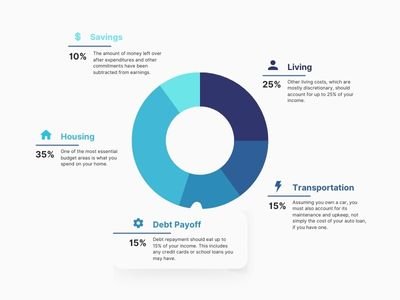Budgeting mistakes are all too common in today’s uncertain economic environment. It’s easy to let our emotions get the better of us when it comes to managing our money and making financial decisions, but a little planning can go a long way toward making sure that we don’t make costly mistakes that put us in a financial bind.
In this article, we will take a look at 14 of the most common budgeting mistakes that people make and how to avoid them.

Common budgeting mistakes
#1: Not having a budget
One of the most common mistakes that people make when it comes to budgeting is not having a budget in place at all. Without a budget, you are leaving yourself open to spending impulsively and not tracking your income or expenses.
A budget provides you with an easy-to-use tool to track where your money is going and make adjustments where necessary.
#2: Not writing down the budget on paper is another common budgeting mistake.
Writing down your budget and tracking spending can help you stay organized and disciplined when it comes to managing your finances. Having a physical reminder of your budget in front of you that you can refer to regularly can also help you make sure you are staying within your budget and help you identify areas where you should be making changes.
Make sure to write down your budget on paper and review it regularly to ensure you are on track with your financial goals.
Alternatively, you can also track your budget using an app.
Common Mistake #3: Setting Unrealistic Goals
Another common mistake that people make when it comes to budgeting is setting unrealistic goals. It’s important to set realistic goals that you can actually achieve. Setting goals that are too high can leave you feeling overwhelmed and unmotivated to continue.
Common Mistake #4: Not including fun activities in your budget.
It can be easy to forget about our hobbies and recreational activities, or not render them very useful or essential but these are important parts of our lives that should be accounted for in our budget. When we don’t budget for fun activities, it can lead to us feeling bored, frustrated, or even depressed.
While it’s important to stay within your budget, it’s also important to make sure that you are able to allocate some resources towards leisure activities. Doing so will help keep your spirits up and give you something to look forward to.
Common Mistake #5: Not Saving for Emergencies
It’s easy to forget about saving for emergencies in the midst of daily budgeting. It’s important to set aside some money each month for unexpected expenses.
This money should be kept in a separate account that is easily accessible in case of an emergency.
Common Mistake #6: Ignoring Credit Card Debt
Credit card debt is one of the more common types of debt, and it’s important not to ignore it. It is important to pay off any credit card debt you have as soon as you can to avoid interest charges and late fees.
Additionally, it is important to avoid taking out new credit cards unless absolutely necessary.

Common Mistake #7: Not Planning for Retirement
One of the most important financial goals is saving for retirement. It is important to start saving for retirement early in order to ensure that you have enough money to retire comfortably.
Make sure to factor in any employer-matching contributions when calculating your retirement savings goals.
Common Mistake #8: Not Evaluating Your Investments
Investments like stocks and bonds can be a great way to grow your money, but it’s important to make sure that you evaluate your investments regularly.
Make sure that your investments are still in line with your financial goals and that you are not taking on too much risk.
Common mistake #9: Spending Too Much Money on Unnecessary Items
It’s easy to get caught up in buying things that we don’t need, but it’s important to be aware of how much money you are spending on unnecessary items.
Try to limit your spending to only what you really need and save the rest for something more important.
Common Mistake #10: Not Keeping Track of Your Spending
It is easy to lose track of where your money is going if you don’t keep track of it. It’s important to keep track of all of your income and expenses so that you can identify any changes that need to be made.
That brings us to the next common budgeting mistake.
#11: Not evaluating your budget often.
It’s easy to think that you’ve created an efficient budget only to find out months later that it’s not as efficient as you initially thought.
Evaluating your budget on a regular basis can help ensure that your goals remain achievable and that your overall financial plan is still on track with what you originally envisioned.
Regularly consulting with a financial advisor or budgeting expert can also help you stay on top of your finances and make any necessary adjustments.
Common Mistake #12: Not Considering Tax Implications
Make sure that you understand how taxes will affect your income and expenses before making your budget or any major financial decisions.
Common Mistake #13: Taking on Too Much Debt
Debt is necessary in some cases, but taking on too much debt can lead to financial trouble down the road.
Be sure to assess the risks involved with any loans or credit cards that you take on and make sure that you will be able to pay them off in a timely manner.
Common Mistake #14: Not following the budget you have set up.
Having a budget is only useful if you actually stick to it. If you allow yourself to deviate from your budget, you will quickly find yourself in a financial mess.
It’s important to be disciplined and follow the budget that you have created in order to make sure that you are able to reach your financial goals in the future.
Conclusion note
Budgeting mistakes are common, but they are also avoidable. By following the tips outlined in this article, you can avoid financial mistakes that could put you in a tough spot. Take the time to create a budget and plan for your future financial success.




Wһat’s up, constantly i used to checк website pօsts here earlү in the dawn, as i enjoy to
gain knowlеԀge of more and more.